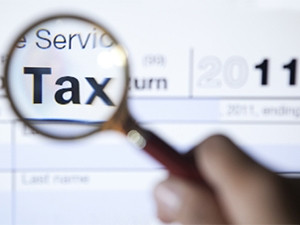
This year, SA can expect more regulation to tighten control on cross-border transactions, to ensure the legislation evolves with the technology and transactions it seeks to tax.
This is according to PricewaterhouseCoopers (PwC), which notes that globally, governments have taken steps to ensure consumption taxes on cross-border transactions, including electronic services to private consumers, are paid in the country where the services are consumed.
The South African Revenue Service (SARS) was one of the international pioneers in changing the approach to regulating and taxing digital services. As of 1 June 2014, non-resident suppliers of certain "electronic services" to South African residents (or if payment originates from SA) are required to register for value-added tax (VAT).
Faced with a weakening economy, the South African government believes it needs to protect its tax base and limit the scope for tax leakages and avoidance. Among the ways of increasing the revenue base, government has made it a requirement for foreign companies that sell e-books, music and other digital goods and services to register as VAT vendors in line with regulations, which have been adopted by other jurisdictions.
Tax base
In his State of the Nation Address last night, president Jacob Zuma insisted on the need to expand the country's tax base, saying this will allow government to increase the social wage and provide education, health, social grants, housing and free basic services in a faster and more sustainable manner.
"The effective implementation of collecting consumption taxes, such as value-added tax on digital sales, will assist jurisdictions to protect their revenue base and level the playing field between domestic and foreign suppliers," says Charles de Wet, head of indirect tax for PwC Africa.
Nicholas Hall, an attorney with Michalsons law firm, says the move is not a new initiative and its implementation was inevitable.
"The truth is VAT has always been meant to be implemented on digital goods." He explains that previously if, for example, someone bought a game on Steam, they didn't pay VAT.
"But you were actually meant to be an honest person and inform SARS that you've done this and then pay the 14% due on it. What the regulation is doing now is changing the onus on who is responsible for that. All this regulation is doing is changing who will be collecting the VAT. So Steam, the iStore and so on must register with SARS and make sure the VAT is paid," says Hall.
"It is expected that the regulations governing electronic services will be broadened this year to ensure the legislation evolves with the technology and transactions it seeks to tax," adds De Wet.
PwC notes SA has three simplistic conditions of which two need to be met to determine whether a foreign enterprise is required to register for and charge VAT in the country. This is subject to the services falling within the definition of 'electronic services' as set out in the regulations.
The regulations set out a limited list of qualifying electronic services which includes services such as the supply of e-books, audio-visual content, music, games and certain subscription services, but which excludes growing service industries in the electronic services space; for example online advertising.
VAT treatment
In Asian markets, such as South Korea and Japan, efforts have been made to reconsider the VAT treatment of transactions by businesses established outside of those countries. Interestingly, says PwC, non-Japanese business-to-consumer (B2C) sellers of electronic services in Japan may be exempt from registering for VAT in Japan where sales to Japanese customers do not exceed the registration threshold of JPY 10 million (approximately R82 000).
This threshold is in stark contrast to the South African model, which has been criticised for casting a wide net with a low registration threshold of only $3 150, PwC notes.
The South African legislation and regulations do not distinguish between business-to-business (B2B) and B2C transactions, while it is largely understood the intention of the legislature was to exclude B2B-type transactions, De Wet explains.
South Korea has been involved in ongoing discussions regarding whether, and to what extent, new rules implemented in that country would apply to B2B transactions. South Korea plans to insert provisions into its legislation stating that if electronic services are supplied to a South Korean entity for business purposes these should not be subject to the new VAT rules. It has long been debated whether South Africa's existing legislation should also be amended to include such a distinction.
For many consumers who relish Internet shopping in a 'tax-free' environment, these changes bring additional costs which seek to incentivise consumerism in-country.
"With Ghana, Australia and New Zealand just being a few of the other countries in readiness to implement their versions of the electronic services provisions, South Africans can expect even more regulation in this area as others try to make up lost ground on the digital economy front. It is time for South Africa to take the next step to further expand the scope of this legislation," De Wet concludes.
Share